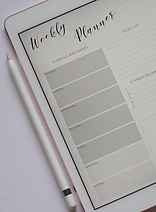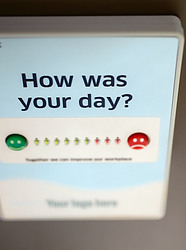
How do you go about your week? Do you plan things on the go or set a time on the weekend or Friday to jot down everything you need to do for the next week? Do you dread the week, especially if you’re in job search mode? Do you want to change your career or (gasp) retire? Are you avoiding career change or retirement planning because you don’t know where to start? Imagine having a tool for those moments of avoidance and self-sabotaging behaviours! What is that tool? YOUR PLAN! Let your calendar and to-do list be your best friends.
Some planning will give you clarity, purpose, and peace of mind no matter where you are. It will also give you an energy boost for your week, career, or retirement. So, before we launch into how to set up your unique plan, let’s look at self-discipline, mindset, and habits.
Self-discipline
The definition of self-discipline is the ability to push yourself forward, stay motivated, and take action, regardless of how you’re feeling, physically or emotionally. I always thought having my own business would free me to do what I want when I want. However, I soon realized that setting goals, planning my week, and having routines were what would eventually lead me to freedom and success. Self-awareness is essential in determining what works and what doesn’t. There is a lot of noise about morning routines and habits. Be careful because what works for somebody else might not work for you.
Ask yourself these questions:
-
- Do I work better in the morning? Afternoon? Or at night?
-
- Am I easily distracted?
- In what environment do I work best?
Your answers to these questions lead us to your mindset.
Mindset
Your mindset is your way of thinking and opinions. Four well-known mindsets are:
1. growth mindset
2. positive mindset
3. entrepreneurial mindset
4. challenge mindset
Mindsets are not set in stone. You can change your mindset. For example, I coached several well-educated women immigrants. They were in the mindset that they had to take supporting roles like receptionist or admin to learn Canadian ways. They couldn’t even get an interview, so they were also in the mindset that it was hard to find work in Canada. I explained to them that they were not getting the interview because of being “overqualified” and that even Canadians who had lived here all their lives wouldn’t get an interview if they were a Director applying for a receptionist job. Applying for a job beneath your qualifications might have worked 30 years ago, but not in the internet world.
See my article here: on Job Search in 2023
And regarding their mindset about learning the Canadian way, I also described Canada as a diverse country and very welcoming of immigrants with diverse talent in the workplace. They do not need to become someone else. They can showcase their unique strengths and accomplishments.
You may wonder what happened next. We worked on a plan for these women to apply for jobs they were qualified for, and employers invited them to interviews. Most got the job!
Habits and Routines
A great habit is to plan your week before Monday. I used to dread Mondays because I would sit at my computer trying to figure out what I should work on first! Then noon crept in, and I had nothing to show for it. Yikes! I began to value the habit of planning my week before Monday. There is not one magical planning day; it’s whatever day works for you. I like to do it on the weekend.
Throughout the weekend, I start a brain dump list of everything I want to accomplish. I look at my list and pick the priority to complete, making it my theme for the week. Then I plug in the other stuff in my calendar, remembering the ONE THING I WANT TO ACCOMPLISH. I learned about this hack in the book To-Do List Formula by Damon Zahariades. At first, I was freaking out. HOW CAN I PICK ONE THING WHEN I HAVE SO MANY THINGS TO DO?!!!! However, when I tried it, IT WORKED! Wow, I was amazed. Damon’s book also teaches you to add catch-up times when you don’t plan anything in your calendar (30 minutes here and there), which supports my belief in “less is more.” So, instead of ending the week with only a few things off the list, I had my main item done and more! You can apply this strategy whether you are looking for a new job or career, starting a business, or want to retire.
“A goal without a plan is just a wish.”
—Antoine de Saint-Exupéry
Here’s an example of a schedule if you’re looking for a job. If you’re out of work, plan no more than 20–25 hours a week (it’s not a full-time job). If you are working, you might be able to schedule 5-10 hours or more. Plan with what you have on the table and what you’re comfortable with.
-
- On Monday, peruse job postings
- Apply to 3-5 jobs per week (more is throwing spaghetti at the wall to see if it sticks)
- Speak to 1 or 2 recruiters a week in the industry you are looking in, or follow up with them
- Connect with five people a week who you know
- Connect with five people a week who you don’t know
- Conduct 1-2 Informational Interviews
- Follow-up
- Take some time for yourself (this is very important)
- Get creative
If you are considering changing careers, instead of applying to three jobs a week, look at the job postings and arrange informational interviews, which is one of the best strategies in your job or career search.
Do the same for a business or if you want to retire. If you need help, book a coffee chat with me.
Plan your week before Monday
Here’s a huge benefit of proper planning: IT INCREASES CONFIDENCE! Do you remember a time when you reached a goal you have been working on for a while, where you had planned out what you would do every day? How did you feel when you accomplished your goal? Pretty confident right?
The first thing is to check your mindset. What are the thoughts going through your mind? If they are negative, how can you make them positive? Then make a brain dump of all the things you want to do.
-
- How many jobs will you apply to this week?
- How many people will you connect with?
- How many follow-ups do you need to do?
- What are the little rewards you will give yourself every day?
“Another benefit of planning is it takes you out
of your comfort zone comfortably.”
—Joanne Savoie-Malone
Track your activities
Have you ever applied for a job, and a few months later, someone calls you for an interview, and you have no recollection of applying for that position and need help remembering the company? A good solution is to track your activities to gain control of your time and be more accountable and productive. It will give you a snapshot of everything you’ve done that week, and you can use it as a “where you are” point to plan your following week. Review your activities weekly to see what worked and what didn’t. There are many tools to track your actions. Use something you are comfortable with, for example, excel, google sheets, or Asana, so you won’t be surprised when a company follows up with you!
You can create an Excel file or a Google sheet with one tab for:
-
- Job Application
- Interviews
- Skills and Training
You can also create folders on your laptop and create a naming convention that works for you by date or by job postings.
You will get excellent results when you adopt new routines for planning and tracking and remain consistent. Trying new things or concepts can feel awkward, so I challenge you to try planning your week for three weeks to see the results I’m talking about. If you need extra help, I’m here for you, either by email or by booking a coffee chat to see how I can help you.
I would love to hear from you
Comment below on your experience or thoughts on planning or tools you use.
You can also email me at joanne@powerplaycareer.com with your comments and ideas about other topics you want me to address.
You can schedule a free call to Book Your Coffee Chat.
For inspiring and informative content, sign up for my newsletter at www.joannesavoiemalone.com and get my free guide: My TWO-STEP Process to help you Ace your next interview.
Until next week,
I remain your sounding board.
Joanne Savoie-Malone
613-749-3210
joanne@powerplaycareer.com



